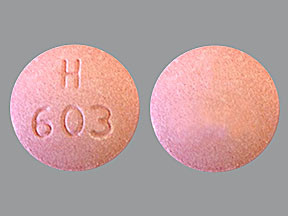FLUCONAZOLE 150 MG - ORAL
PHONETIC PRONUNCIATION: (floo-KON-a-zole)
COMMON BRAND NAME(S): Diflucan
GENERIC NAME(S): fluconazole
Uses
USES: Fluconazole is used to treat vaginal yeast infections. It works by stopping the growth of common types of vaginal yeast (fungus). This medication belongs to a class of drugs called azole antifungals.
How to use FLUCONAZOLE 150 MG - ORAL
HOW TO USE: Read the Patient Information Leaflet before you start taking fluconazole and each time you get a refill. If you have any questions, ask your doctor or pharmacist. In Canada, some brands of this medication are available without a prescription. Before taking over-the-counter fluconazole, read the product instructions and talk to your doctor if this is your first vaginal yeast infection, if this is your second infection within 2 months, or if you are considering treatment for a girl under 12 years old. Take this medication by mouth usually as a single dose, with or without food at any time of the day, or as directed by your doctor. The effect of this medication continues for several days. If your condition does not improve after a few days or if it worsens, or if you think you may have a serious medical problem, get medical help right away.
Side Effects
Precautions
Interactions
Overdose
Images
Reviews
Faq for FLUCONAZOLE 150 MG - ORAL
Fluconazole 150 mg is an antifungal medication used to treat various fungal infections, including vaginal yeast infections (candidiasis).
Fluconazole inhibits the growth of fungi by interfering with their cell membranes, thus preventing the fungi from multiplying and causing an infection.
Fluconazole 150 mg is usually taken as a single dose, with or without food. It is important to follow the instructions provided by your doctor or pharmacist.
Common side effects of Fluconazole 150 mg include headache, nausea, stomach pain, diarrhea, and dizziness. However, not everyone experiences these side effects.
It is generally recommended to avoid alcohol while taking Fluconazole 150 mg, as it may enhance the side effects of the medication and can impair liver function.
If you are pregnant, planning to become pregnant, or breastfeeding, it is important to consult your doctor before taking Fluconazole 150 mg. They will assess the potential risks and benefits for you and your baby.
The effectiveness of Fluconazole 150 mg varies depending on the individual and the specific infection being treated. It is important to complete the full course as prescribed by your doctor, even if symptoms improve earlier.
If you have liver or kidney problems, your doctor may need to adjust the dosage of Fluconazole 150 mg. It is important to inform your doctor about any existing medical conditions before taking this medication.
It is important to inform your doctor or pharmacist about all medications you are currently taking, including prescription, over-the-counter, and herbal products. Certain medications may interact with Fluconazole 150 mg and affect its effectiveness or increase the risk of side effects.
Disclaimer
IMPORTANT: HOW TO USE THIS INFORMATION: This is a summary and does NOT have all possible information about this product. This information does not assure that this product is safe, effective, or appropriate for you. This information is not individual medical advice and does not substitute for the advice of your health care professional. Always ask your health care professional for complete information about this product and your specific health needs.





No Reviews Yet